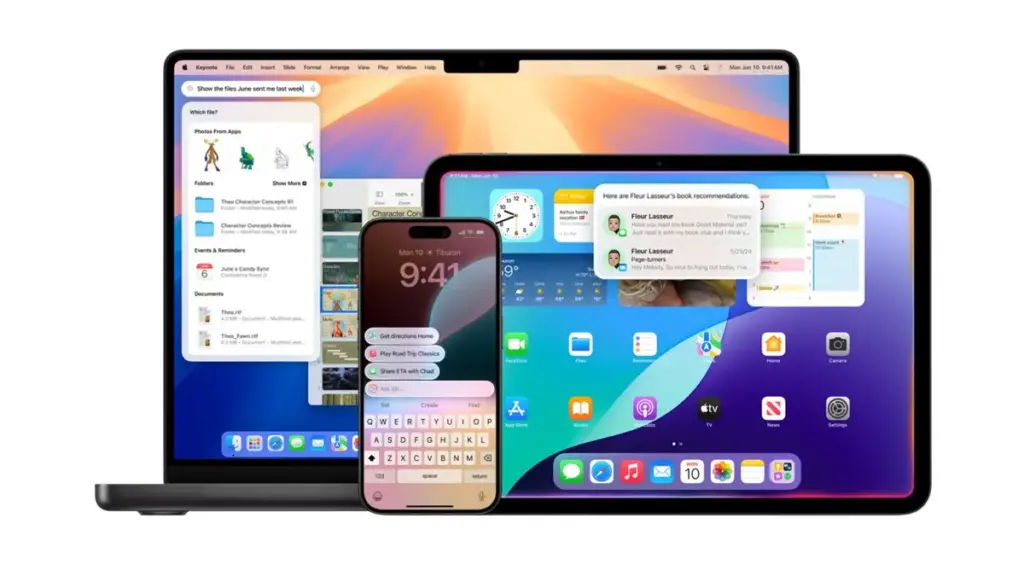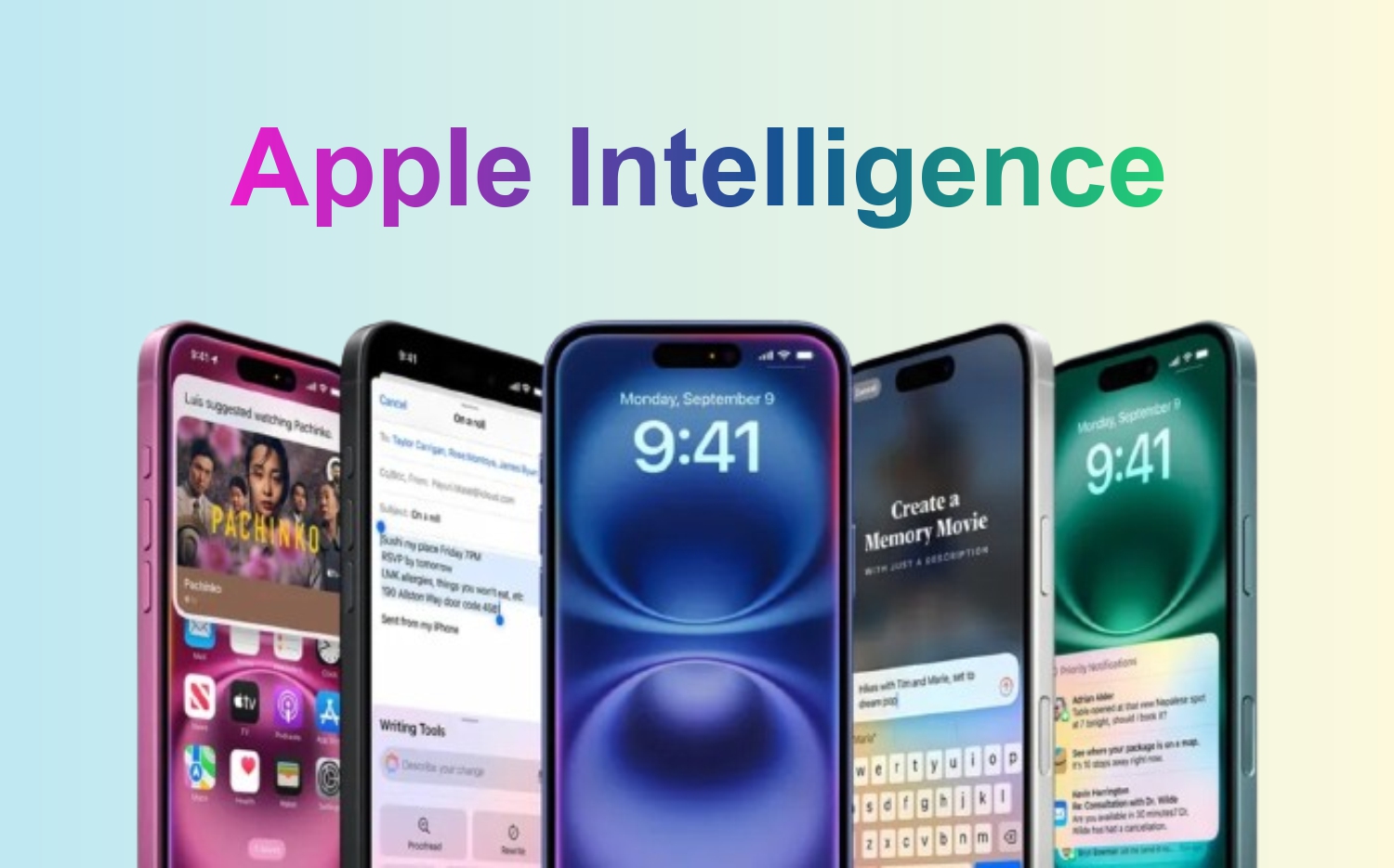Apple has always prided itself on its innovative approach to technology, but as the world increasingly turns to artificial intelligence (AI), the tech giant’s journey into AI integration will face a critical crossroads in 2025. That year may very well determine the fate of Apple Intelligence and Siri, two of the company’s most talked-about features. Apple Intelligence was introduced in 2024 as Apple’s first real dive into the AI space, with a set of tools including everything from writing assistance to image manipulation. While Siri, Apple’s voice assistant, has been around for years, the 2025 Siri update will be the one that could either elevate or doom the entire concept of AI-powered personal assistants within Apple’s ecosystem.
Apple’s journey into AI is coming at a time when other tech giants, particularly Google, are already well ahead in terms of AI-powered capabilities. For Apple, catching up and surpassing competitors in a meaningful way could prove to be a monumental challenge. However, Apple has the infrastructure, resources, and dedicated fanbase to potentially turn its AI vision into a game-changer. In this article, we will explore why 2025 will be a make-or-break year for Apple Intelligence and Siri, highlighting both the exciting prospects and the possible pitfalls.
Apple Intelligence: A New Era of AI Integration
2024 marked a pivotal moment for Apple, as it launched Apple Intelligence—a suite of AI-driven features aimed at enhancing the user experience across its various devices. Apple Intelligence has been released gradually, with its initial features launching in iOS 18.2. These include tools like Genmoji, Mail Categorization, and Notification Summaries. Additionally, Apple has integrated ChatGPT into Siri, offering an advanced AI-backed conversational ability for the first time.
While the rollout of Apple Intelligence may have been slower than anticipated, it is clear that Apple is positioning itself to play catch-up with companies like Google and Microsoft, which have long been pioneers in the AI space. Nonetheless, Apple’s unique approach to AI is its own advantage. Apple has always been known for simplifying complex technology into something that’s intuitive and easy to use. The integration of AI in Apple’s ecosystem is no different. But does Apple Intelligence have the potential to be more than just a gimmick? And will it be compelling enough for users to make it a core part of their daily lives?
Why 2025 Is Crucial for Apple Intelligence’s Success
As we look toward 2025, Apple’s strategy to push AI features like Apple Intelligence into mainstream usage will face several challenges. The most significant is the upcoming overhaul of Siri. Siri has often been considered the underachiever among digital assistants. Although it’s been a foundational feature in Apple devices for over a decade, it has never reached the level of sophistication that its competitors, such as Google Assistant and Amazon Alexa, have achieved.
In 2025, Apple is expected to release a new version of Siri, one that’s designed to be more intelligent, responsive, and versatile than ever before. The promise is that this will be the version of Siri users have been waiting for—one that doesn’t just handle basic commands but functions as a truly intelligent personal assistant. With the inclusion of ChatGPT and other advanced AI technologies, Siri could evolve into a more natural, conversational assistant capable of understanding context, managing tasks, and integrating deeply with Apple’s ecosystem.
However, there’s a catch. Apple has always prided itself on creating products that are simple, intuitive, and reliable. AI, in its current state, is still a relatively complex and unfamiliar concept for many users. While tools like Grammarly or AI chatbots have gained traction, many consumers still perceive AI as more of a novelty than an essential tool. If Apple wants to convince users to embrace AI fully, it must offer tangible, practical use cases that feel indispensable—features that make life easier and more efficient, not just cool or interesting to experiment with.
This is where 2025 becomes crucial. If Siri’s overhaul and the continued development of Apple Intelligence can make these AI features genuinely useful, they could become a compelling reason for users to upgrade to the latest iPhone or Mac. Conversely, if Siri still feels clunky, overly simplistic, or fails to meet expectations, Apple risks alienating its loyal customer base, who might start looking elsewhere for AI-driven solutions.
Apple’s Commitment to Simplicity
Apple’s strategy with Apple Intelligence is one of simplicity. While other companies dive headfirst into the complexities of AI technology, Apple aims to make AI feel like a seamless extension of its ecosystem. The key is simplicity. Apple doesn’t want you to have to learn how to interact with Siri or Apple Intelligence—they want it to feel like something you just naturally use without thinking. This level of ease of use has been one of Apple’s biggest strengths and is a core principle the company hopes to extend to its AI integration.
Apple’s hardware ecosystem is another factor that will be crucial for the success of Apple Intelligence. Apple products are designed to work together in harmony, and Apple Intelligence aims to follow suit. Universal Clipboard and AirDrop are two features that perfectly demonstrate Apple’s approach to cross-device integration. Apple Intelligence will need to be just as ubiquitous and seamless, working not just across iPhones and iPads, but on Macs, Apple Watches, and even Apple’s AR/VR devices. A genuinely integrated AI experience could become the glue that holds the Apple ecosystem together, making the devices feel even more connected and powerful.
The addition of Genmoji and other AI-powered tools in 2024 shows Apple’s ambition to make its AI features not just functional but fun and engaging. Users can now create personalized emojis based on real-life photos, a small but intriguing example of how AI could inject some creativity into everyday tasks. For Apple, these small features can make Apple Intelligence feel less like a futuristic concept and more like a tool that fits into your life.
A Competitive Edge or a Missed Opportunity?

While Apple’s philosophy of simplicity and seamless integration has worked well in other areas, it remains to be seen if it will be enough to make Apple Intelligence a success. The tech world is rapidly evolving, and with competitors like Google and Microsoft pushing the boundaries of AI, Apple needs to prove that it can offer something different, if not better, in order to stay competitive.
Google’s AI solutions, such as Google Assistant, have long been seen as some of the best on the market, particularly due to their deep integration with Google’s search engine and other products. In addition, Microsoft’s partnership with OpenAI has led to powerful new tools like Copilot, which integrates AI into Microsoft’s suite of Office apps. Apple needs to find a way to make its AI products as indispensable as these competitors have.
However, Apple has one major advantage over its competitors: its brand. Apple customers are fiercely loyal to the company, and if Apple can convince them that Apple Intelligence is more than just a cool feature but a true upgrade to their daily lives, it could unlock an entirely new level of growth for the company. This is the core of Apple’s strategy—make AI simple, functional, and fun enough that users feel they need it.
The Risks of a Missed Opportunity
The potential consequences of a failed Apple Intelligence rollout are significant. If 2025’s Siri update doesn’t live up to expectations, Apple risks losing its edge in the AI race. The AI revolution is already underway, and if Apple falls behind, it could lose customers to competitors that offer more powerful and reliable AI assistants.
Furthermore, if Apple Intelligence doesn’t evolve into something that is genuinely useful, it could end up being relegated to the category of “nice-to-have” rather than a must-have feature. Consumers may simply ignore or dismiss AI capabilities as unnecessary, leaving Apple’s AI ambitions to fade into the background.
Conclusion: A Defining Year for Apple Intelligence
As we approach 2025, it’s clear that this will be a defining year for Apple Intelligence and Siri. Apple’s success in the AI space will depend on its ability to make AI feel natural, indispensable, and easy to use. If the company can build upon its reputation for simplicity and create truly intelligent features that seamlessly integrate with its hardware, Apple Intelligence could become an essential part of the Apple ecosystem.
On the other hand, if Siri’s 2025 update fails to meet expectations, Apple risks alienating its loyal user base and missing out on a critical opportunity in the rapidly evolving AI market. The year 2025 could either cement Apple’s place at the forefront of the AI revolution or serve as a turning point in the company’s ability to capitalize on this transformative technology.
In the end, Apple’s future in AI is far from certain, but if any company can take AI and make it accessible and meaningful for the masses, it’s Apple. Whether it will succeed in 2025 remains to be seen, but one thing is clear: the stakes have never been higher.

